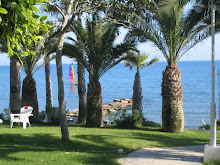
History in Cyprus
After1400 BC, the first Greeks came to the island, Mycenaen merchants, who started the Hellenisation of the island.
By1050 BC
From750 BC
In 58 BC
After the division of the Roman Empire Cyprus becomes part of
In1191 AD Cyprus is defeated by the crusader Richard the Lionheart. The island is then sold to the Knights Templar, who resell it to Guy de Lusignan. From 1192 to 1489
In1489 control of the island passes to the Venetians who takes steps to fortify the island and build walls around the towns of
In1571 Ottoman troops invades the island and
IN1878, under the Cyprus Convention,
An armed struggle breaks out in 1955 against colonial rule, which lasts until 1960 when the island is granted independence.
In 1963 Turkish-Cypriot ministers withdraw from the Government in protest at proposed changes to the Constitution and
In1974 the Greek junta instigates a coup in
Culture
Cypriots are very proud of their cultural heritage, which stretches back more than 9000 years.
Age-old crafts, handed down from one generation to another, are faithfully carried on to this day by skilful hands and nimble fingers, fashioning handcrafts, both decorative and useful, that would grace any home. It is probably no surprise with a history so long, that
Related Links…
http://visitingcyprus.blogspot.com/
http://myamazinginida.blogspot.com/
http://visitinglondoncity.blogspot.com/
http://visitingistanbulcity.blogspot.com/
http://visitnewsevenwonders.blogspot.com/
For Bookings Rooms on Best Rates please contact
reservations@mstravels.com
with code VS-MSTT.












No comments:
Post a Comment